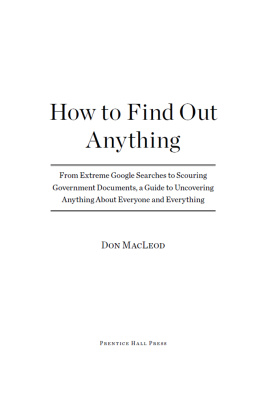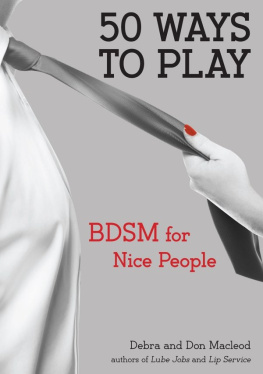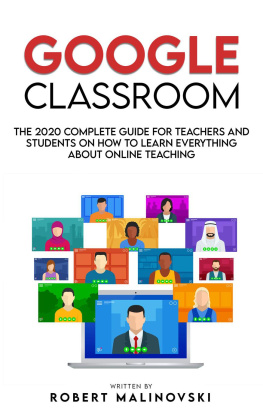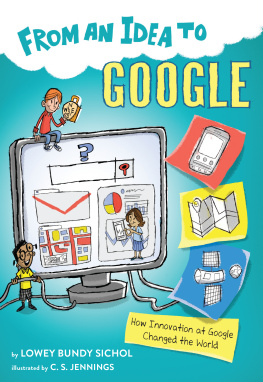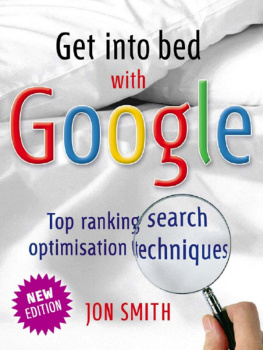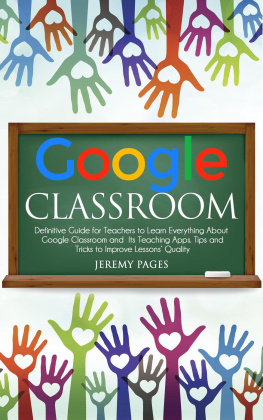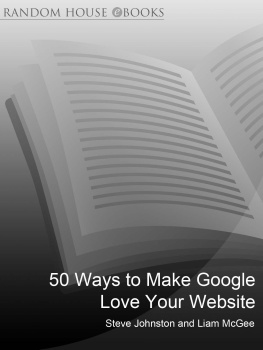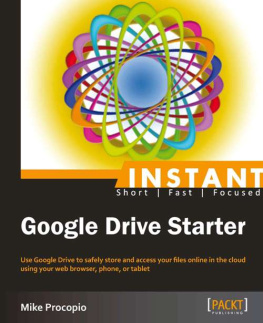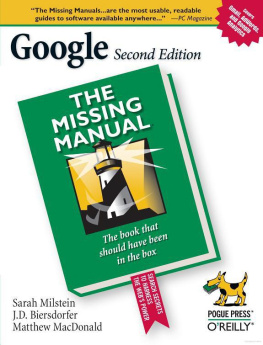How to Find Out Anything is an indispensable guide to the information age. Its written with great clarity and wit, and crammed with useful tips and resources, as well as sage advice on how to organize and plan your research. My only complaint is that it didnt come out a long time ago. It would have saved me a lot of time and frustration.
John Strausbaugh, author and journalist
I use Dons tips every day at my proofreading job and for my own writing research. Id love to sing his praises on the record. I do so daily, as it is.
Leigh Angel, proofreader
I remember one thing in particular that Don saidsomething to the effect of no matter how obscure an interest or passion may be, if there are two people in the world who share it, they will find each other and they will form an association! I thought that was hysterical and its true! Don taught me how to Google in a whole new way!
Jen Fernicola Ronay, attorney
How to Find Out
Anything

From Extreme Google Searches to Scouring Government Documents, a Guide to Uncovering Anything About Everyone and Everything

D ON M AC L EOD
P RENTICE H ALL P RESS
PRENTICE HALL PRESS
Published by the Penguin Group
Penguin Group (USA) Inc.
375 Hudson Street, New York, New York 10014, USA
Penguin Group (Canada), 90 Eglinton Avenue East, Suite 700, Toronto, Ontario M4P 2Y3, Canada (a division of Pearson Penguin Canada Inc.) Penguin Books Ltd., 80 Strand, London WC2R 0RL, England Penguin Group Ireland, 25 St. Stephens Green, Dublin 2, Ireland (a division of Penguin Books Ltd.) Penguin Group (Australia), 250 Camberwell Road, Camberwell, Victoria 3124, Australia (a division of Pearson Australia Group Pty. Ltd.) Penguin Books India Pvt. Ltd., 11 Community Centre, Panchsheel Park, New Delhi110 017, India Penguin Group (NZ), 67 Apollo Drive, Rosedale, Auckland 0632, New Zealand (a division of Pearson New Zealand Ltd.) Penguin Books (South Africa) (Pty.) Ltd., 24 Sturdee Avenue, Rosebank, Johannesburg 2196, South Africa
Penguin Books Ltd., Registered Offices: 80 Strand, London WC2R 0RL, England
While the author has made every effort to provide accurate telephone numbers, Internet addresses, and other contact information at the time of publication, neither the publisher nor the author assumes any responsibility for errors or for changes that occur after publication. Further, the publisher does not have any control over and does not assume any responsibility for author or third-party websites or their content.
Copyright 2012 by Don MacLeod
Text design by Tiffany Estreicher
All rights reserved.
No part of this book may be reproduced, scanned, or distributed in any printed or electronic form without permission. Please do not participate in or encourage piracy of copyrighted materials in violation of the authors rights. Purchase only authorized editions.
PRENTICE HALL PRESS is a registered trademark of Penguin Group (USA) Inc.
First edition: August 2012
Library of Congress Cataloging-in-Publication Data
MacLeod, Don, 1955
How to find out anything : from extreme Google searches to scouring government documents, a guide to uncovering anything about everyone and everything / Don MacLeod.First edition.
pages cm
Includes index.
ISBN: 978-1-101-61734-2
1. ResearchMethodology. 2. Information resources. 3. Electronic information resources. 4. Internet searching. 5. Electronic information resource searching. 6. Google. I. Title.
ZA3075.M33 2012
001.42dc23 2012010974
PRINTED IN THE UNITED STATES OF AMERICA
10 9 8 7 6 5 4 3 2 1
Most Prentice Hall Press books are available at special quantity discounts for bulk purchases for sales promotions, premiums, fund-raising, or educational use. Special books, or book excerpts, can also be created to fit specific needs. For details, write: Special Markets, Penguin Group (USA) Inc., 375 Hudson Street, New York, New York 10014.
ALWAYS LEARNING
PEARSON
To Lisa
Of all the things I have found out over the years, the one thing I learned that matters most is how lucky a guy I am.
Saber es poder.
How to Think Like a Researcher
How much money does my boss make? Where is my great-grandmother buried? Who did my college girlfriend marry? How many other card stores are there in the town where I want to open mine? How can I change careers at the age of fifty? What companies would want to buy what my company produces and whom should we contact?
Welcome to the information age. Questions like these were once no more than things to ponder as you fell asleep, but now the answers are at the tips of your fingersif you know where, and how, to look.
Research is the process of finding out for yourself what somebody else already knows. Every time you consult a book on how to cook a flounder filet or Google for information about your daughters college or ask the advice of your doctor about that strange pain in your arm, you make the assumption that an answer to your question is out there. You assume that someone has written a cookbook or built a website or studied physiology thoroughly enough to correctly diagnose what ails you. Your instincts are right, because we live in the Information Age.
In our literate society, people record what they know. They research and publish books. They create websites. They tweet on Twitter. They write articles, make videos, and appear on TV. They store knowledge in their own heads. Information surrounds us as surely as water surrounds a fish, simply because someone decided to record what he or she knows. As evidenced by everything from ancient cuneiform writing pressed into clay tablets to the latest breaking news story online, humans need to put what they know into a form more permanent than speech. Whether the record is private, like a diary, or public, like a newspaper, ideas, thoughts, and data are stored in written form.
Paradoxically, for all the uncountable words and pictures we can conjure up with the click of a mouse, the Information Age poses it own unique problem: With so much information available, finding the useful fact or reliable study or collection of data to answer a question turns out to be more challenging than it seems, even with a powerful tool like Google to help us look.
This book will address the single most common misconception of the Information Age: that Google is the be-all and end-all of research. Speaking as a law librarian with more than twenty-five years in the research trenches, I can tell you that it isnt. Google has an important role to play in many research tasks, but its only one tool of many that professional researchers rely on to get accurate and timely answers to thorny questions. Its ideal for many ordinary, humdrum tasks, like locating the address of a restaurant or finding out last nights baseball scores. The picture is much different, though, when we start to distinguish quick searches from serious research. Getting past a dependence on Google and other search engines is the focus of this book. As all good librarians know, theres a lot more useful information in the world than what search engines can deliver. And even on those occasions when Google is, in fact, the right tool to use, too many people overlook the powerful features of the Advanced Search option and instead muddle through with sloppy, bloated search results. There are better ways to find what you want.
Next page
